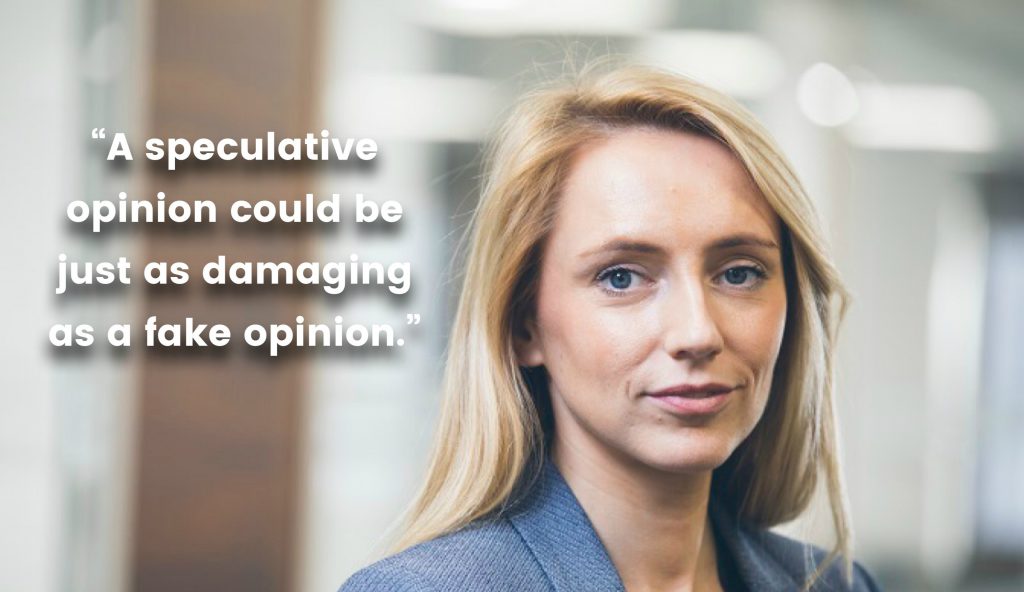The value of the Expert Witness’s opinion

Claims of fake news are now commonplace within the press. The accusations of untruths continue to span the internet, questioning the source of facts and figures. In this ‘post-truth’ era, questions are being raised as to whether this has impacted the value of the expert witness’s opinion.
Expert witnesses are an exception to the rule that witnesses cannot express an opinion. Where Courts are required to deliver judgements which involve a complex or highly technical matter, the opinion of an expert witness can form a key part of a case. Expert witnesses often rely on second hand facts and figures in order to form an opinion to assist the Court.
When is an expert an expert?
The recent Times and Bond Solon Expert Witness Survey 2018 published in November 2018 outlined that nearly 60% of the several hundred expert witnesses surveyed thought that the Courts are unable to distinguish the “truth” between conflicting expert witnesses giving evidence at trials.
In 2015, in order to address similar criticisms of experts by the Judiciary, practice directions from the Court introduced a requirement for all experts giving evidence in Northern Ireland to undertake appropriate training and seek accreditation. The Academy of Experts (a UK professional body of experts) has recently reported that the Northern Irish courts are becoming more and more insistent on seeing the evidence of this, going so far as to exclude evidence presented by Expert Witnesses who do not comply.
Such action has also been applied to high profile cases in English Courts, notably the recent removal of the expert architect reporting to the Grenfell Tower Inquiry. The expert witness had declared himself an architect however he was not registered with the Architects Registration Board.
An expert witness’s duty
It is therefore key that an expert witness understands their duty to the Court and does not act outside of their areas of expertise. Whilst an expert witness will be engaged by the plaintiff or defendant, the overriding duty of an expert witness is to provide independent, impartial, and unbiased evidence to the court or tribunal.
Specifically, the role of a forensic accountant expert witness will vary from case to case. Forensic accounting experts can provide assistance to the Court via financial investigation, the assessment of claims, the calculation of loss of profits and the valuation of assets, amongst a range of other instructions. Prior to accepting their instruction, the forensic accountant must determine whether they have the required level of accounting expertise and experience in order to form an opinion on the matter at hand.
A useful reminder
Often the biggest challenge for forensic accountants is obtaining detailed and complete information. Experts may need to mention facts about which they have no direct proof and use them to support their evidence. The more information made available to establish second hand facts (such as full accounts, complete bank statements, tax returns) can result in the application of fewer assumptions. As such, a forensic accountant can provide vital assistance to the legal team with guidance on what information to request during the discovery phase of litigation.
Reassuringly, 86% of experts surveyed by the Times and Bond Solon replied no when asked ‘whether they thought some experts are inventing or embellishing their reports to produce fake opinions in this time of fake news’. However, the question itself serves as a useful reminder to experts that, in addition to stating all facts, sources and assumptions, they must make clear to the Court the limitations of their evidence. A speculative opinion could be just as damaging as a fake opinion.
Cathy McLean
Forensic Services Senior Manager
Email: cathy@hnhgroup.co.uk
Telephone: 02890 316937
